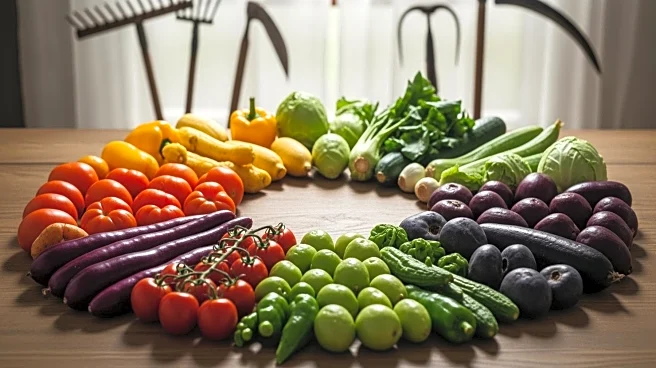What's Happening?
Farmers worldwide are adapting to climate change by redistributing crops to more suitable regions, a practice known as crop shifting. This strategy is being tested in the UK, where rice, soy, and chickpea
are being grown in new areas. While these adaptations can enhance yields and create new markets, they also pose risks to cultural heritage and rural identity. Traditional crops like cowpea, teff, and okra, which are climate-adapted, are being integrated into farming systems to preserve Indigenous knowledge. The Vision for Adapted Crops and Soil initiative, launched by the US Department of State, aims to build resilient food systems in Africa by leveraging genetic diversity in under-utilized crops.
Why It's Important?
The redistribution of crops due to climate change is crucial for maintaining global food production and supporting local economies. However, it also threatens the cultural heritage and identity of farmers who have cultivated traditional crops for generations. The loss of deep knowledge of the landscape can undermine resilience to climate variability. The initiative by the US Department of State highlights the importance of preserving Indigenous knowledge while adapting to climate change, ensuring that agricultural innovations do not erase cultural connections.
What's Next?
As climate change continues to impact agriculture, more regions may adopt crop shifting strategies to optimize production. This could lead to increased research and investment in climate-adapted crops and the development of new agricultural policies that balance innovation with cultural preservation. Stakeholders may need to address the ethical implications of these changes and support farmers in transitioning to new practices while maintaining their cultural heritage.
Beyond the Headlines
The shift in crop distribution raises questions about the long-term cultural impacts of climate change on rural communities. It highlights the need for policies that respect and integrate traditional knowledge into modern agricultural practices, ensuring that adaptations do not come at the cost of cultural identity.









